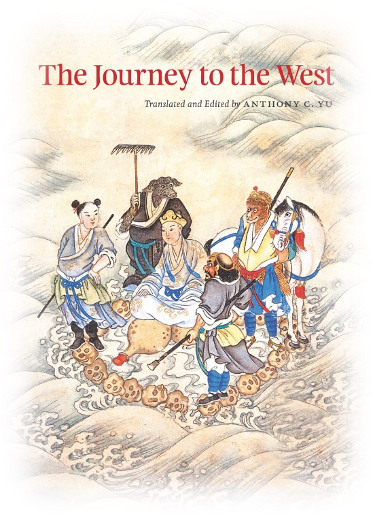道教傳度與《西遊記》的結構
Book Culture in Buddhism and Beyond lecture given by Richard G. Wang 王崗, University of Florida 佛羅里達大學
The past decade has witnessed a paradigm shift in the study of the epic novel Xiyouji 西遊記 (Journey to the West). A new generation of Chinese scholars have collected liturgical texts in Buddhism and popular religion, and interpreted the novel from the ritual perspective. This lecture as part of this trend also construes XYJ from the angle of the rites of passage. But this reading concerns a specific rite of passage, more literal than metaphorical. This is the multiple Daoist investitures of Sun Wukong, or Monkey, as he progresses in his religious cultivation and the plot advances. After detailed textual analyses and comparison, I argue that Sun Wukong’s martial power and merit-making in subduing demons is rewarded Daoist investiture. Structurally, Sun Wukong should be recognized as the protagonist of XYJ whereas Xuanzang, or Tripitaka, as his master elicits his service in exorcistic battles in conquest of monsters.
過去十年見證了在古典小說《西遊記》研究中範式的轉移。新一代的中國學者搜集佛教和民間宗教儀式文本,並從儀式視角詮釋《西遊記》。本講座作為這一趨勢的一環,從「過度儀」的角度詮釋《西遊記》。但這一閱讀卻關乎一種特殊的過度儀,其字面意義大於隱喻意義。這就是伴隨著其宗教修持上的精進以及情節的發展,孫悟空所經歷的一系列道教傳度儀。通過細緻的文本分析和比對,本人論證了孫悟空因滅魔除妖的法力和功行,得以受獲道教之傳度。結構上,孫悟空應被認為是《西遊記》的主角;而唐僧則作為其師,面對妖魔鬼怪時,利用孫悟空的儀式服務進行驅邪征戰
Richard G. Wang received his PhD from the University of Chicago. He is Professor of Chinese Studies and Religious Studies at the University of Florida. He is also Courtesy Concurrent Professor at the Research Institute of Chinese Classics, Fudan University, and Guest Director of Studies (Directeur d’études invité) at la section des Sciences Religieuses de l’École Pratique des Hautes Études. His research focuses on Daoism, Chinese fiction, and religion and Chinese literature of late imperial China, in particular the Ming dynasty (1368-1644). He is currently exploring the Daoism and local society in the Ming as well as the religious dimensions of Ming novels. His teaching interests include Taoism and Chinese culture, Chinese culture, Pre-modern Chinese fiction in translation, Journey to the West, Dream of the Red Chamber, East Asian Martial Arts Classics, and Self and Society in East Asia. He has published the following books: Lineages Embedded in Temple Networks: Daoism and Local Society in Ming China; The Ming Prince and Daoism: Institutional Patronage of an Elite; The Ming Erotic Novella: Genre, Consumption, and Religiosity in Cultural Practice; (collated and ed.) Maoshan zhi (The Gazetteer of Mount Mao), (co-edited with Li Tiangang) Religion and State in Local Society in Late Imperial and Modern China (in Chinese), and The Romantic Sentiment and the Religious Spirit: The Late Ming Literature and the Intellectual Currents (in Chinese).
| Contact |
|---|
| Dr Noga Ganany: ng462@cam.ac.uk |

